| Country | Grants | Loans |
|---|---|---|
Austria 2016/17 - grants and loans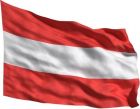 | The federal student grants for 1st and 2nd cycle can systematically be divided into two sections: direct study
financing received in cash, and indirect study financing. Indirect financing may be a transfer payment to the
students’ parents (e.g. family allowances and tax relief), or non-cash benefits (e.g. health and accident insurance
for students and tax benefits).
Direct student support is paid out in monthly instalments of up to EUR 9 492 per year on the basis of social criteria and of good academic performance. The amount is assessed on the basis of the income of the parents, the student and his/her spouse, and the number of family members. Students may only be required to pay back grants when proof of academic achievement is missing after the first two semesters. | No student loans. |
Belgium - flemish 2016/17 - grants and loans | Student grants for first and second cycle programmes are allocated on the basis of economic need. Eligibility is determined by the income of parents and/or the student. Annual amounts typically range from EUR 256 to EUR 3 966. In 2014/15, the average grant amount was EUR 1 721.07. A student is also entitled to an extraordinary grant of up to EUR 5 340 on the basis of extremely low income and a lack of family support. There are no student grants for short-cycle tertiary programmes, except for the associate degree programme for nursing, with typical amounts ranging from EUR 693 to EUR 3 126 | No loans. |
Belgium - french 2016/17 - grants and loans | Public grants in academic year 2016/17 are available for low income students. However, eligibility is restricted to students under 35 years of age upon initial registration. Students must apply for this financial benefit each year. The amount granted in 2015/16 ranged from EUR 394 to 4 821 per year depending on household income. | Loans are available via students' parents if they have at least three dependent children. Very few (less than 0.01 %) took out a loan (2014/15). The maximum interest rate is 4 %. Repayment must start six months after graduation. |
Belgium - german 2016/17 - grants and loans | Student grants are need-based. Parental income determines eligibility, and students must be 35 years old or younger to be eligible. Annual grant amounts are between EUR 362 and 2 469, and are paid by the Ministry of the German-speaking Community. | Province guaranteed loans of EUR 1 000 are available for a full first cycle programme and EUR 1 500 for the second cycle. The loan can be used to cover studies in higher education institutions in the Province of Liège and for short-term credit mobility abroad (including the Flemish Community and other parts of the French Community of Belgium). Interest rates are 0-3 %, depending on the student's income. The loan needs to be repaid three years after graduation. The loans are managed by the Province of Liège. An additional loan of EUR 1 500 can be awarded on a case-by-case basis. No students took out a loan in 2015/16. |
Bosnia and Herzegovina 2016/17 - grants and loans | There are no need-based grants.
Responsible ministries of education at entity and cantonal level award merit-based public grants to full-time students with Bosnian and Herzegovina citizenship in public universities. The eligibility criteria include both need- and merit-based elements, such as the minimum grade obtained should be 8/10, performance (1st-3rd place) in national or international competitions, parents' income and employment status. The monthly grant ranges from BAM 100 to BAM 800 and is available for 12 months each year until graduation. Further grants for students are provided by local government. Part-time students are not eligible to apply for state-funded grants. | There are no loans, tax benefits for parents or family allowances. |
Bulgaria 2016/17 - grants and loans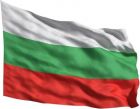 | Grants/scholarships are available to full-time students in all study cycles. They are distributed by higher education institutions based on their specific eligibility criteria. One type of grant must contain two indicators: academic performance and monthly income per family member of the student for the previous six months. From 2016, universities must also award merit-based grants – based only on academic performance. Grant amounts range from BGN 50 to 120/month, and in most cases are issued during 10 months. Starting from the second semester of the 2016/17 academic year, grant amounts shall range from BGN 70 to 150 per month. There is no support for part-time students. | Full-time first and second cycle students who are EU/EEA/Swiss citizens, less than 35 years old and have not interrupted their studies can apply for state guaranteed loans. The study loan may be equal to the tuition fee. The amount of loan to cover living costs is linked to the minimum wage. The interest rate cannot exceed 7 % at banks that have signed an agreement with the government. Repayment is due one year after graduation and must be completed in 10 years. No information is available on the percentage of students taking out the loan. |
Croatia 2016/17 - grants and loans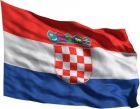 | Student grants are available to full-time students of first, second and short-cycle study programmes. Part-time
students are not eligible to apply for state-funded grants.
Student grants are provided by the Ministry of Science, Education and Sports. Grants are awarded according to need-based criteria such as students' household income per household member or type and level of student’s disability. The total annual amount of the grant is HRK 10 800 (HRK 1 200 per month during nine months). In the academic year 2015/16, the ministry provided about 5 200 grants. Universities provide additional grants for full-time students, based on the merit-based criteria, such as the number of ECTS achieved in the past years of study and the grades obtained. The grant amounts and distribution criteria are determined autonomously by the universities. Further grants for students are provided by a number of regional and local governments. | There are no loans. |
Cyprus 2016/17 - grants and loans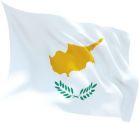 | A 'student grant' can be awarded to short cycle and 1st and 2nd cycle students to support their studies in Cyprus
or abroad. To be eligible students must have resided in Cyprus for at least five years before enrolment. The
amount of the grant is based on family income. The annual amount ranges from EUR 1 450 to EUR 3 420.
The 'student allowance' is a targeted need-based grant to cover living, books, rental, and computer expenses of 1st cycle students based on their socioeconomic status. The amount is EUR 3 692 per year. A new Student Welfare Service is established to manage the student grant and the student allowances. The State Scholarship Foundation awards scholarships based on students' academic performance and socio- economic status. Students studying in 1st cycle programmes may receive up to EUR 3 000 per year, in 2nd cycle programmes EUR 4 000 per year, and EUR 4 000 in a PhD programme (3rd cycle). | Study loans are available only for owners of property in the northern part of Cyprus. This is a state loan for 1st, 2nd and 3rd cycle students who study in Cyprus or abroad. The annual amount ranges from EUR 1 700 to 8 000 and should cover living expenses and tuition fees. Repayment in general starts one year after graduation and should be completed within 20 years. The interest rate of the loan is 1.75 %. Around 1.5 % of students take out the loan. |
Czech Republic 2016/17 - grants and loans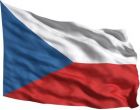 | Scholarships are granted by all public higher education institutions on the basis of excellence in studies, or for
research, artistic and other activities.
Scholarships are granted to students from regions other than the seat of the higher education institution (CZK 5 400/year). Around 47 % of students received this scholarship in 2015/16. Social scholarships are available for students in a difficult economic situation. The amount received is the same for everyone (CZK 24 750/year). 0.8 % of students received this support in 2015/16. | No publicly subsidised or market loans are provided for financing studies. |
Denmark 2016/17 - grants and loans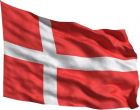 | State grants are available to all full-time Danish students who are active in recognised educational programmes,
and whose income does not exceed a defined amount (DKK 11 922 in 2016) in the month where the student
receives the grant. The minimum amount is DKK 922 per month for 12 months awarded to students who live with
their parents. The maximum amount is DKK 5 941 per month for 12 months each year for students living
independently. International students (EU and outside EU) must fulfil some special conditions to be placed on an
equal footing with Danish citizens and receive state education support.
Extra grants are available for students who become parents when they live with another recipient of education support (DKK 2 373) and for single parents (DKK 5 941). Additional grants of DKK 8 449 per month are available for students with a disability when the disabled is not able to work while studying. The amounts shown are for the year 2016. The fees are annually regulated, new amounts will apply for 1 January 2017. All grants are taxable, the payable amount depends on individual circumstances. | State loans of DKK 3 040 per month are available to all full-time students who are entitled to a state grant.
Supplementary student loans for students who are parents: DKK 1 521 per month. 'End-loan' for students who
have used all their state grants and who have no more than 12 or 24 months left of their educational programme:
DKK 7 842 per month. During the period of study, a 4 % annual interest rate applies. Students must start paying
back no later than one year after the end of the calendar year in which they graduate. The loan must be repaid
within 15 years. 38 % of students make use of state loans.
Part-time students are not eligible for state support. |
England 2016/17 - grants and loans | - | 1st cycle and short-cycle full-time: 2016/17 entrants do not receive a need-based grant but may obtain a higher
level of loan for living costs. The maximum for students living in the family home is GBP 6 904. For students living
away from home the maximum is GBP 8 200 outside London and GBP 10 702 in London. The loan repayment is
income-contingent and set at 9 % of earnings above the threshold of GBP 21 000; interest rates are Retail Price
Index plus 3 %. Special support grants are available for students who have dependent children or who have
certain disabilities. Many institutions also offer other bursaries and scholarships aimed at students from under-
represented groups.
Continuing 1st cycle full-time students who entered prior to 2016/17 may still apply for a maintenance grant of up to GBP 3 387 plus a lower level of maintenance loan. The grant awarded depends on household income. In 2014/15, 57.5 % of applicants eligible for support (grant and/or loan) were awarded either a full (42.8%) or partial (14.7%) grant. 1st cycle part-time: students studying a course of at least 25 % intensity, or in short cycle programmes, can apply for a loan to cover the tuition fee, which may be repaid after graduation. Loans for living costs are not available. 2nd cycle postgraduate taught: from 2016/17, a loan of up to GBP 10 000 is available for postgraduate Masters study. The same amount is provided for one year or for longer master programmes. 2nd cycle postgraduate non- taught – individual institutions can provide a merit based grant, which tends to follow the minimum stipend recommended by Research Councils UK, GBP 14 296 for 2016/17. |
Estonia 2016/17 - grants and loans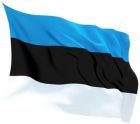 | In general, full-time students are eligible for support. The grant system includes need- and merit-based support.
Need-based grants vary from EUR 75 to 220 per month for 10 months per year depending on students and family
income. Approximately, 12 % of students receive a need-based. From 2014/15, full-time and part-time students
with disabilities and students growing up in care institutions may apply for a higher education scholarship. In the
case of disabled students, the scholarship ranges from EUR 60-510 per month.
Students may apply for a merit-based grant of EUR 100 per month based on excellent study results. This is available for 2 % of the student population. A further merit-based grant of EUR 160 per month (1 600 per year) is available to approximately 50 % of full-time students in smart specialisation areas. For computing and information technology curricula, the amount of the grant is EUR 160-300 per month (EUR 1 600-3 000 per year). Part-time students in teacher training programmes can also apply for a speciality grant. Approximately 5 % of all students receive the speciality grant. | Estonian citizens or persons with a permanent residence permit, studying full-time for nine months or more have the right to obtain a state-guaranteed study loan. The maximum amount is EUR 1 920/academic year, and 8 % of students took such a loan in 2015/16. The interest rate is 5 %. Repayment must start within a year after graduation (except if the student continues studies), and must be completed in double the nominal period of studies, if studies are finished without a qualification, repayment must be done in 1-1.5 the period of studies. |
Finland 2016/17 - grants and loans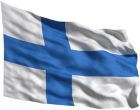 | Only full-time students are eligible for student support. The maximum annual aid is EUR 11 260.32. A common
amount is EUR 8445.24 (of which EUR 3 600 is a student loan).
Study grants (SG), which require the completion of an average 60 credits per year, are universal for a maximum of 64 months. Amounts depend on age and whether the student lives with parent(s). Typically, for students over 18 years living on their own the maximum is EUR 336.79. For students under 20 years living with their parents, the typical range is between EUR 62-163.80 per month. A housing supplement (HS) covers 80 % of the rent for students living independently, with a maximum of EUR 201.60/month. HS aims to match support to need (i.e. less support to students with lower housing costs). SG and HS are typically available for nine months only if the student's income, which may be earned at any time during the calendar year, is below EUR 11 850/year. | Student loans of EUR 400/month are government guaranteed. Students who graduate within the target time can be entitled to tax deduction (30 %, for studies that started prior to 1 August 2014) or compensation (40 %, for studies that started on 1 August 2014 or after). Repayment of student loan usually starts 1.5-2 years after graduation and has to be completed in usually double study time. Interest rates and conditions are agreed with the student and the bank. |
Former Yugoslav Republic of Macedonia 2016/17 - grants and loans | Merit-based grants are provided for students showing particular scientific or artistic inclinations and winning
awards at international and national competitions. Grants are awarded on the basis of the contest announced by
the Ministry of Education and Science, two-three months after the beginning of an academic year.
Need-based grants are awarded to students based on the monthly income of their family (60 % weight), academic performance (20 % weight), if they are the child of a single parent (10 % weight), and if studying at a technical, engineering or medical university (10 % weight). Students who have not passed at least 80 % of the prescribed exams for their study programme are automatically disqualified. The average grant amount is around MKD 3 000 per month, for nine monthly instalments. The maximum grant is about MKD 5 500 per month. Grants can be awarded to all students in first cycle studies in public and private higher education institutions in the country. There is no scholarship for students in the first academic year. Approximately 20-25 % of all students receive grants (need-based and merit-based grants). Support is not available for students in short cycle programmes. | There is no student loan, nor tax release or family allowance. |
France 2016/17 - grants and loans | Grants are awarded on the basis of financial need to students (short, first and second cycle) less than 28 years of
age. The annual amount awarded for need-based grants depends on an assessment of social criteria, with
students classified into nine categories based on family income. All grant holders receive free tuition and a waiver
from social security contributions (EUR 215). In 2016/17, the amount of the annual grant ranges from EUR 0 (for
lower middle-class students who only receive a fee waiver and a waiver from social security contributions) to
EUR 5 551. An additional grant amounting to annual EUR 1 009 is available for the most deprived (based on family
income) lower middle-class students.
Students who receive a need-based grant can also get a complementary merit-based grant (based on school performance from the baccalauréat results) which amounts to EUR 900 per semester. | State guaranteed loans up to an annual maximum of EUR 15 000 are also available for all EU/EEA students aged under 28. Loans are guaranteed by a special fund 'OSEO'. Less than 0.1 % of university students take out such a loan. Interest rates are defined by banks. Repayment must start 2 years after graduation, but early redemption of interests is possible. |
Germany 2016/17 - grants and loans | General public student support (BAföG) is awarded as a grant for one half of the individual amount, and as an interest free loan for the other half. Total amounts range from EUR 10 to EUR 735/month for 12 months/year. It is available for full- time 1st and 2nd cycle and comparable studies (e.g. state exam studies in law, medicine). Eligibility and amount are determined by assessment of student need based on income, family situation, housing situation and disability. A maximum of EUR 10 000 needs to be paid back. The average amount paid for 2015 was EUR 5 376 per year (EUR 448 per month). Students need to be under the age of 30 (35 for master studies) to be eligible. | An education loan (Bildungskredit) covers living costs which are not covered by BAföG. The maximum amount that can be taken out is EUR 7 200. Repayment of EUR 120 per month must start four years after the start of the loan. The Federal Government guarantees the repayment credit and the interest. A study loan with favourable terms (KfW-Studienkredit) of up to EUR 54 600 is also available. Both loans are paid out in monthly instalments. |
Greece 2016/17 - grants and loans | There are no standard scholarships. Depending on funds available from the state budget, ESIF or private funds
managed by IKY (State Scholarship Foundation), a call for applications for grants is published. Awards and
scholarships may be offered by higher education institutions, according to students' academic performance and
financial status. Part-time students are not eligible for IKY grants.
Grant/scholarships are also offered by research institutions/non-profit/benefit foundations to first, second cycle and PhD students. Eligibility/selection criteria are age, grades (for 2nd cycle), foreign languages, work experience and socio-economic status. The scholarships awarded by the Hellenic Open University cover the full amount or part of the student fees per academic year if a combination of economic, social and academic criteria is met by the student. | 2nd students may apply for state guaranteed loans until the age of 45 and if they meet academic and socio- economic criteria. Parents' guarantee for redeeming the loan to credit institutions is requested. Interest rate may be covered by the Ministry of Education, Research and Religious Affairs up to 50 % (Government Gazette 659/31-07- 1996). The terms of loan are further determined by the credit institutions. There are no statistical data on the number of students who receive loans. The legal basis for a loan for 1st cycle studies is available, but the conditions have yet to be developed. |
Hungary 2016/17 - grants and loans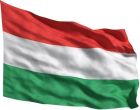 | Need-based grants are paid for 10 months/year. Only full-time state-funded students are eligible. For students with
one living parent and those under legal guardianship until the age of 18, the grant is for HUF 119 000/academic
year. For multiple disadvantaged students, orphans, students supporting dependents or those from a large family, it
is HUF 238 000/academic year. Disadvantaged students can also apply for the Bursa Hungarica scholarship jointly
financed by municipalities and higher education institutions with an average value of HUF 25 427. Both fee paying
and state subsidised students are eligible. In the autumn semester of the 2015/16 academic year, 6.4 % of all 1st
and 2nd cycle students received this scholarship. One-off initial and emergency grants are also available.
Merit-based grants are available to full-time state-funded students, and a maximum of 50 % can receive this support. The minimum amount is HUF 59 500/academic year. Another merit based 'Scholarship of the Hungarian Republic' is granted to a maximum 0.8 % of state-funded students with a value of HUF 340 000/academic year. | Two government-subsidised loans are available. The first, with a maximum duration of five years (longer for subjects such as medicine), is for both state-funded and fee-paying students, and has a maximum amount of HUF 50 000/month (HUF 60 000 for certain categories of disadvantaged student) for a period of 10 months/year. 9 % of students took this loan in 2015/16. The second loan (Loan 2) can only be spent on fees. 18 % of eligible students took this loan in 2015/16. Fee-paying students can take out both loans simultaneously. Loan repayment must start four months after the end of student status, and by the age of 40, with repayment linked to personal income. |
Iceland 2016/17 - grants and loans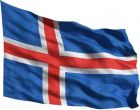 | In principle no public grants/scholarships are available. However, some merit-based grants are provided by universities and by the Icelandic Research Fund for Graduate Students for the 2nd cycle students. | Loans are provided to full-time students by the Icelandic Student Loan Fund for short, 1st and 2nd cycle
programmes. The amount depends heavily on student's family and personal circumstances, including income. The
basic individual support for academic year 2015/16 is ISK 165 717/month or ISK 24.858 for each completed ECTS
unit. Around 50 % of students take out a student loan. The same support is available for 1st and 2nd cycle
students.
Loans may be awarded to full-time students who participate in further programmes with 60 ECTS units of study in each academic year or at least 30 ECTS units each semester. Loans may also be granted to cover tuition fees for courses (not including maintenance) that are organised differently. Loans are not granted for preparatory courses, doctoral programmes or professional development programmes. The loan is indexed and has a fixed interest rate of 1 %. Repayment begins two years after graduation. Graduation is defined when the student ceases to receive loans from the Student Loan Fund, unless he demonstrates that he will continue to qualify for loans in the next school year thereafter. Refund will stand over until the debt is paid or the borrower has passed away. The board of the Fund may grant exemption from the annual repayment, in full or in part, if the pursuit of studies that qualify for a loan, illness, unemployment and/or unfitness for work due to illness, disability, pregnancy, the care of children, the care of a spouse or other comparable circumstances cause the recipient substantial financial difficulty. |
Ireland 2016/17 - grants and loans | Need-based grants are provided to full-time students by the Department of Education & Skills, depending on means, family size and distance from institutions. For first cycle students, the grant ranges from EUR 305 to 5 915 per academic year. Students who qualify for grants also have the student contribution or tuition fees paid on their behalf. Second cycle students may receive a grant of EUR 2 000 to cover their study fees. The income threshold for this payment is EUR 31 500 for the 2016/17 academic year, increasing relative to the number of family dependents. Alternatively, students who meet certain qualifying conditions are eligible to have their post-graduate tuition fees paid up to EUR 6 270. The bursaries of EUR 2 000 may also be awarded based on merit- and need- based criteria. Students need to satisfy specific conditions of residence, means, nationality and previous academic attainment to be eligible for grants. Short cycle students are not eligible. | No loans or family allowances. |
Italy 2016/17 - grants and loans | Public grants are allocated on the basis of both economic need and academic merit. The amount depends on whether the student lives with her/his parents and is defined, within the range mentioned in the diagram above, by the regional authorities. The ministry sets the minimum and maximum amount of the grant for each new academic year. For 2016/17, the minimum amount of the grant is EUR 1929.22 and the maximum amount of the grant is EUR 5 118.36. | No loans or family allowances. |
Latvia 2016/17 - grants and loans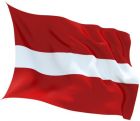 | Public grants, primarily based on academic merit, are available only to full-time students studying on state- subsidised study places. Recently, more need-based criteria are taken into account. Disabled or orphaned students with families, from large families or in economic need are treated favourably. The amounts are EUR 99.60/month (per 10 months) for the first and second cycle. Approximately 13 % of 1st cycle students, 8 % of 2nd cycle students and 8 % of short-cycle students studying receive this funding support. | Two types of loans exist, the first to cover tuition costs and the second, capped at EUR 170.74/month to cover living costs. Repayment needs to start 11 months after the end of the degree programme. In 2015/16, 12 % of fee- paying students benefited from loans, and this percentage is in decline since 2009. The state covers loans for students studying in fields considered significant for national economic development. |
Liechtenstein 2016/17 - grants and loans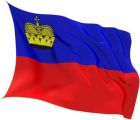 | Public support consists of a variable combination of grants and an interest-free loan. The maximum total
amount is CHF 25 000, of which 40-60 % is a grant and the rest is a loan. From age 32 on, the state financial
support consists of interest free loans only.
Students need to have had permanent residence in Liechtenstein for minimum three years when applying for public support to be eligible. Eligibility also depends on the student's income and assets (principle of subsidiarity/need-based system). The amount is calculated on the basis of admissible costs and reasonable expectations of self-support. Parents' income and assets are taken into account for the assessment of eligibility and calculation of support for students below the age of 25 and if s/he has not worked fulltime for at least 2 years. Repayment of loans start 18 months after study programmes has ended. Payment is made on fixed rates in six instalments per year. The repayment rate can be deferred once on request. State scholarships and grants can be applied for all tertiary education programmes and are fully portable to allow for mobility ( 10 ). There is no financial support for incoming students. | Public support consists of a variable combination of grants and an interest-free loan. The maximum total
amount is CHF 25 000, of which 40-60 % is a grant and the rest is a loan. From age 32 on, the state financial
support consists of interest free loans only.
Students need to have had permanent residence in Liechtenstein for minimum three years when applying for public support to be eligible. Eligibility also depends on the student's income and assets (principle of subsidiarity/need-based system). The amount is calculated on the basis of admissible costs and reasonable expectations of self-support. Parents' income and assets are taken into account for the assessment of eligibility and calculation of support for students below the age of 25 and if s/he has not worked fulltime for at least 2 years. Repayment of loans start 18 months after study programmes has ended. Payment is made on fixed rates in six instalments per year. The repayment rate can be deferred once on request. State scholarships and grants can be applied for all tertiary education programmes and are fully portable to allow for mobility ( 10 ). There is no financial support for incoming students. |
Lithuania 2016/17 - grants and loans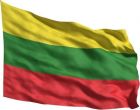 | There are three main types of grants available for both 1st and 2nd cycle students:
1) Academic achievement scholarships are awarded to around 9 % of students. Amounts range from EUR 6 to 228
per month, with EUR 57 the most common for full-time and EUR 38 for part-time students. The scholarship period
varies from 1 to 12 months. 2) Social scholarships of EUR 123.5 per month are awarded to around 3 % of
students, and support low socio-economic background, disabled students and orphans. The scholarship period is
up to 12 months. 3) Study scholarships may be provided to high performing self-financing students in both public
and private HEIs. In 2015, about 0.2 % of students in public HEIs received such support. The maximum grant
amount is determined by the maximum fees that the Ministry agrees to cover for state supported students.
Self-financing 1st cycle students who have completed the first two academic years or the rest of the programme with the best results may be reimbursed tuition fees. The maximum number of students who receive this support may not exceed 10 % of the state-funded student cohort. In 2015, approx. 4.5 % fee-paying students received reimbursement. | In 2015, about 4.5 % of all students took out a state-supported loan. 75 % of loans cover tuition fee costs, and 25 % are for living expenses with less than 1 % for studies abroad. The maximum amount to cover study fees is the annual study fee; for living expenses it ranges between EUR 950-1 900. The loan repayment must start one year after the end of studies. The term of loan repayment is 15 years. The interest rate depends on the credit institution. |
Luxembourg 2015/16 - grants and loans | Financial aid is a 'package' including a grant only, a grant plus loan, or only a loan depending on the income of the
student. The maximum financial support amount (grant and loan together) that a student can receive per academic
year is EUR 19 950. Support duration: 1st cycle = official duration + 1 year; 2nd cycle = official duration.
The higher education grants are open to all resident students, and to non-residents according to conditions related to working in Luxembourg. The eligibility criteria are the same for all students (short cycle, 1st cycle, 2nd cycle), including mobile students studying in another country. Basic grant: EUR 2 000 per academic year, without any condition. Mobility grant: EUR 2 450 per academic year, for students who attend higher education in another country and have accommodation expenses. Social criteria grant: EUR 0 to EUR 3 800, depending on the income of the student’s family. Registration fees: EUR 0 to EUR 1 850 (as grant) + EUR 0 to EUR 1 850 (as loan). | State guaranteed student loan: a EUR 6 500 basic loan is awarded to each resident student per academic year. The loan amount increases if the student does not receive a full or partial social grant. Reimbursement starts two years after having completed or stopped studies, and must be completed in 10 years. |
Malta 2016/17 - grants and loans | All short and 1st cycle full-time students (Maltese EU/EFTA/EEA) receive a student maintenance grant. Students
in 'prescribed courses' (listed in Legal Notice 372 of 2005) obtain an annual grant of EUR 698.81 and ten stipend
instalments of EUR 151.99 every four weeks between October and June. Those in other full-time programmes
('general courses') receive an annual grant of EUR 465 plus ten stipend instalments of EUR 86.85 every four
weeks between October and June. At the start of studies, a one-time grant of EUR 698.81 or EUR 465.87
respectively, is offered. Maintenance grants are awarded in second-cycle courses leading to a regulated
profession. Student maintenance grant increases pro rata on a yearly basis to reflect the national Cost of Living
Adjustment (COLA).
Students who, due to proven hardship, qualify for a supplementary maintenance grant receive ten instalments of EUR 291.62 every four weeks, instead of the stipend. Students in a 'general course' receive an annual grant of EUR 465.87 while students in 'prescribed course' EUR 689.81. Several scholarship schemes are available to students who wish to pursue studies abroad. | No loans and no family allowances are in place. |
Montenegro 2016/17 - grants and loans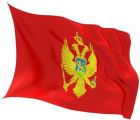 | There is no need-based grant. Merit-based grants are awarded to the best-performing first-time students in the second and the succeeding academic years of study, including students showing particular scientific or artistic inclinations and winning awards at international and national competitions. Grants are awarded on the basis of the contest announced by the Ministry at least one month before the beginning of an academic year. Grants are not awarded to student loan beneficiaries. The maximum grant is EUR 86/month paid in ten monthly instalments. The Ministry of Education also awards co-financing scholarships of up to EUR 500 for 2nd cycle and doctoral students who study in Montenegro or abroad. | State guaranteed loans are available on the basis of performance to first-time students. The average loan is EUR 45/month for ten monthly instalments. Repayment must start one year and the latest 18 months after completion of studies. Best performers may be exempted from repayment or receive discounts. |
Netherlands 2016/17 - grants and loans | Depending on parental income, a supplementary grant is available to a maximum of EUR 384 per month. This does not need to be repaid if
the student graduates within 10 years, but the maximum loan amount is lowered. On average students enrolled in 2015/16 received an annual
amount of ca. EUR 3 900.
Students who are delayed in their studies due to medical conditions have a right to an extra year of student finance. They are also eligible for a loan remittance up to EUR 1 200 if they graduate within 10 years. For all eligible students public transport is free, either weekdays or at the weekends according to their choice. 'Vouchers' for professional training: Students that start in higher education (HBO or university) for the first time between 2015/16 and 2018/19 receive a voucher for professional training when they graduate. This voucher has a maximum value of EUR 2 000 and can be used between 5 and 10 years after graduation. | Students enrolled in higher professional education or university since 1 September 2015 can apply for a state loan – maximum of EUR 1 028
per month. This is composed of two loans: one to cover living costs, with a maximum of EUR 862.50 per month and the other of EUR 165 per
month to cover tuition fees. Those students already enrolled before 2015 are eligible for need-based grants running for the standard length of
programmes.
Students can take out the same amount of loan for a further three years after graduation. The loan repayment period is 35 years. The amount to be repaid per month depends on the size of the loan, personal income and interest rates (0.01 % in 2016). When income is below the minimum wage no loan repayments are required. After 35 years, outstanding debt is waived. It is also possible to reduce payments when income decreases by at least 15 %. |
Norway 2016/17 - grants and loans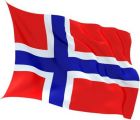 | Norwegian students (both part-time and full-time) are entitled to basic support (loans and grants) from the State
Educational Loan Fund (NSELF). The maximum basic support is NOK 103 950 per academic year (10 months),
which is initially given as a loan. However, 40 % of the loan may be converted to a 'state educational grant' for
students who live away from their parents and pass all exams. The grant will be reduced if the student's income
exceeds NOK 172 595 or have assets exceeding NOK 392 662. The amount of the basic support is universal for
all students who are eligible for financial support. The maximum amount of the grant is NOK 41 580.
Students under 25 years of age may also receive a grant for travel costs. Students taking care of children may receive a grant for each child under the age of 16 (NOK 16 200). Students on parental leave can be given a grant for up to 49 weeks. Students who cannot study because of illness may have the loan converted into a grant for up to four months and 15 days per academic year. Physically disabled students can receive an extra grant (NOK 35 490) if they are unable to work during their studies, and they may also receive basic support for twelve months per year. There is full portability of NSELF loans and grants for both exchange and degree students studying abroad. After graduation, the student will receive a repayment programme stipulating how much s/he has to pay and a prognosis for the repayment period. Interest is calculated from the first day of the month following graduation, and also if s/he interrupts his/her education or is no longer entitled to financial support. Repayment normally starts in monthly installments seven months after graduation. The amount varies according to the size of the debt and the length of the repayment period. The most common repayment period for students with NOK 300 000 debt is 20 years. | Norwegian students (both part-time and full-time) are entitled to basic support (loans and grants) from the State
Educational Loan Fund (NSELF). The maximum basic support is NOK 103 950 per academic year (10 months),
which is initially given as a loan. However, 40 % of the loan may be converted to a 'state educational grant' for
students who live away from their parents and pass all exams. The grant will be reduced if the student's income
exceeds NOK 172 595 or have assets exceeding NOK 392 662. The amount of the basic support is universal for
all students who are eligible for financial support. The maximum amount of the grant is NOK 41 580.
Students under 25 years of age may also receive a grant for travel costs. Students taking care of children may receive a grant for each child under the age of 16 (NOK 16 200). Students on parental leave can be given a grant for up to 49 weeks. Students who cannot study because of illness may have the loan converted into a grant for up to four months and 15 days per academic year. Physically disabled students can receive an extra grant (NOK 35 490) if they are unable to work during their studies, and they may also receive basic support for twelve months per year. There is full portability of NSELF loans and grants for both exchange and degree students studying abroad. After graduation, the student will receive a repayment programme stipulating how much s/he has to pay and a prognosis for the repayment period. Interest is calculated from the first day of the month following graduation, and also if s/he interrupts his/her education or is no longer entitled to financial support. Repayment normally starts in monthly installments seven months after graduation. The amount varies according to the size of the debt and the length of the repayment period. The most common repayment period for students with NOK 300 000 debt is 20 years. |
Nothern Ireland 2016/17 - grants and loans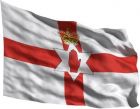 | 1st cycle and short cycle full-time students: the support package includes a need-based grant for living costs. The full grant of GBP 3 475 is awarded to students with a household income of GBP 19 203 or less, with partial grants for students whose household income is up to GBP 41 065. In 2014/15, 59.9 % of applicants for support received a grant (37.6 % of applicants received a full grant and 22.3 % a partial grant). All institutions must offer an additional bursary, whose amount varies, to students who receive the maximum grant for living costs or special support grant. | The support package also includes a loan for living costs for all students. The maximum loan is GBP 3 750 if living in
the family home, GBP 6 780 if living away from home and GBP 5 770 for a year of a UK course spent abroad. The
amount is reduced for students who receive a need-based grant. Repayments are income-contingent and made at
the rate of 9 per cent of income above the earning threshold of GBP 17 495.
1st cycle part-time students: the support package includes a need-based grant towards payment of fees (though it is not intended to cover them completely). Students studying at 50 % or greater intensity and whose household income is up to GBP 25 420 receive a fee grant. The grant is awarded on a sliding scale with the maximum awarded to students studying at 75 % intensity whose household income is less than GBP 16 843. For 2nd cycle students, there is no universal support package. 2nd cycle postgraduate non-taught: individual institutions can provide a merit based grant, which tends to follow the minimum stipend recommended by Research Councils UK, GBP 14 296 for 2016/17. |
Poland 2016/17 - grants and loans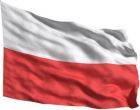 | Need-based grants are available for all students (both 1st and 2nd cycle and part-time) with a low personal/family
income, and for students with disabilities. The income threshold to be eligible for need-based grants for students
with low family income is decided by HEIs and is between PLN 668.20 and 1 043.90 per person per month. In
2014, 13.28 % of all students received a need-based grant based on their socio-economic situation and 1.64 % of
all students received the need-based grants for students with disabilities. The average amount was PLN 4 674.28
per year.
Merit-based grants are allocated to the best-performing full-time and part-time students. The average amount of the merit-based grant is PLN 4 332.70 per year. 7.43 % of all students received such grants in 2014. The total monthly amount of the need- and merit-based grants may not be more than 90 % of the lowest basic pay of an assistant (the lowest academic position at higher education institutions) as regulated by legislation. | Loans of PLN 6 000/year may be taken out in any cycle by students whose personal income is below net PLN 2 500/month (in 2014/15). The state guarantees the entire loan for students with family income of PLN 600/month per person and 70 % for students with a family income of PLN 1 000/month. Students starting their studies before the age of 25 can apply for a loan which is granted for the period of study or maximum six years. Repayment begins two years after graduation. While receiving the loan and for the following two years interest is paid by the state budget, and later on interest rates are capped. The best-performing 5 % of graduates may obtain the cancellation of 20 % of their loan. |
Portugal 2016/17 - grants and loans | Student grants can be need or merit based. Eligibility for need-based scholarships is determined by the income of the student and his/her family. Need-based grant amounts depend on the fee levels and vary between EUR 1 063.47 and EUR 5 675. Merit-based grants are set at EUR 2 650.00 per year. The number of merit-based grants that each institution can provide is previously determined by the ratio 1 grant per 500 students. To be eligible for the grant, students need to have completed all study requirements of the previous year and to have obtained good marks (over 16 on a scale 0-20). Additional grants are provided to a maximum of 1 000 students who move to study in less populated regions of Portugal. The annual amount is EUR 1 500. | There is a special loan scheme for higher education students at low rates, with government guarantee. |
Romania 2016/17 - grants and loans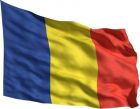 | Need-based grants, most commonly amounting to RON 250/month and payable for 9.7 months, are based on the
financial situation of the student. In 2015, 7.84 % of full-time students received a need-based grant.
Merit-based grants take different forms: study bursaries (most commonly RON 375/month for 9.7 months) and merit-based scholarships (most commonly RON 400/month for 9.7 months). High achievement scholarships (of which one exists per faculty) can reach up to RON 600/month for 9.7 months. Grants for excellent performance in research at Bachelor level have a ceiling of RON 500/month for 9.7 months. 15.68 % of full-time students received merit-based grants in 2015. The grant amounts are determined by each higher education institution. They aim to cover the costs of living in student accommodation and of meals. The university establishes the number of grants out of the total fund for higher education expenses. The funds are annually provided by the ministry. First- and second-cycle students are eligible, but part-time students are not eligible for grants. | No student loans. |
Scotland 2016/17 - grants and loans | Both grants and loans are available to full-time first-cycle students, and amounts depend on the level of household
income. The 'Young Student’s Bursary' of up to GBP 1 875 per year is available to students under the age of 25 at
the start of their course with a household income below GBP 34 000. The 'Independent Students' Bursary' of up to
GBP 875 per year is available to students aged at least 25, with a dependent child or married/co-habiting, and with
a household income below GBP 18 999. Additional support is also available to students who incur extra costs
related to a disability or learning difficulty.
Depending on household income, 'young students' can take out a maximum loan of GBP 5 750 per year, and 'independent students' a maximum of GBP 6 750 per year. All eligible students can also apply for a non-income assessed student loan of GBP 4 750 per year. Students become liable to repay their loans in the April after they graduate or leave their course. Repayments for loans are normally deducted from earnings by employers at the rate of 9 % of income above GBP 17 495. In 2015, 51 % of full-time students took out loans. In 2016-17, the maximum support package – grants and loans combined – is GBP 7 625. A part-time fee grant (PTFG) is available to Scottish and EU students studying credits equivalent to 15-59.5 ECTS per academic year. The level of grant is based on a pro-rata amount of the full-time regulated fee. | Second cycle students can apply for a fee loan of up to GBP 3 400 for eligible full-time courses (GBP 1 700 for part-time). Second cycle students on eligible courses may also apply for a living cost loan of up to GBP 4 500. |
Serbia 2016/17 - grants and loans | Student grants are provided by the Ministry of Education, Science and Technological Development only to 'budget-financed' students in the 1st and 2nd cycle. The state grant scheme is merit based, and only students with an average grade of at least 9 (out of 10) may apply. Specific merit-based grants for students from vulnerable groups are available, with additional needs-based criteria, like the proof of disability, certificate/proof of socio- economic status, etc. A state grant amounts to RSD 84 000 annually, paid in ten monthly instalments. In the academic year 2015/16, there were 8 914 student grantees. The Ministry of Youth and Sports provides additional merit-based grants of RSD 300 000 per year to up to 800 bachelor and 400 master students. State universities, provincial and university cities’ governments also provide funds for supporting talented students. 9.5 % of budget funded students (4.8 % of all) received grant. Students with disabilities, Roma students and students who finished secondary school in another country could apply for tuition fee exemption through affirmative measures within official call for enrolment. | Ministry of Education, Science and Technological Development provides loans to students primarily based on
merit, the social status of students is an additional criteria. The amounts are the same as grants – RSD 84 000
paid in ten monthly instalments. Students who finish studies with an average grade higher than 8.5 (on the 6 to 10
scale) are not obliged to return the loan. In 2015/16, 11 700 students received loans.
Local governments offer grants, loans and other benefits to students from their municipalities/cities. There is no systematic data on the range and type of grants/loans/scholarships provided. |
Slovakia 2016/17 - grants and loans | There is a legal right for a need-based grant/scholarship subject to specified conditions. The monthly amount of
this need-based scholarship varies from EUR 10 to EUR 275. First and second cycle students are eligible. Short
cycle students are eligible for need-based scholarships of EUR 22.61-45.21 per month depending on their
academic performance.
Merit-based motivation scholarships are granted by the higher education institutions for excellent results in studies, research and development, artistic or sporting activity. The amount is set by higher education institutions or faculties. The state subsidy for this purpose is calculated at an average rate of EUR 450 per student for 10 % of students. Universities are provided with additional finances for merit-based scholarships in specific scientific study fields. The scholarship amount is determined by universities. The state subsidy provided is calculated at an average rate of EUR 1 000 (per student) for 15 % of students. | Publicly subsidised loans provided by the Education Support Fund are available for full- and part-time students throughout the regular duration of study programmes. Loans range from EUR 500 to 2 500 per year and are taken by about 1 % of students. |
Slovenia 2016/17 - grants and loans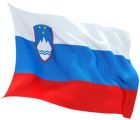 | Student grants can be need- or merit-based. The grants are available for 12 months a year. Corporate
scholarships may also be co-financed from public funds. Same support is available to short, 1st and 2nd cycle
students.
Need-based scholarships are available for economically disadvantaged students. The amount received depends on household income. In addition, allowances for academic performance, living away from home and special educational needs can be granted. In 2014/15, 20 % of all HE students received need-based scholarship. Merit-based scholarships are awarded to students with exceptional achievements in research and artistic field, competitions and/or academic performance. In addition to the basic amount of merit-based scholarship, allowances for living away from home and special educational needs can be granted. In 2014/15, 4 % of all HE students received merit-based scholarship. Full-time and part-time students are eligible for a scholarship if they are not employed, registered as unemployed or managers of a company or private institution and under 27 years old when enrolling for their first degree. They need to have Slovenian citizenship and/or to reside in Slovenia. | No loans are provided. |
Spain 2016/17 - grants and loans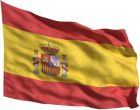 | The national general grant has several components. Each student may receive one or more of the components
depending on their family income (grades are also considered in one of the components): fixed amount of
EUR 1 500 based on the student’s family income; fixed amount of EUR 1 500 for living costs for students living
outside the family home during their studies and who also meet certain income criteria; and a variable amount,
based on the student’s family income and grades. The minimum variable amount is EUR 60, and the maximum
amount varies from year to year, since it results from distributing among the applicants the money that is left over
after paying all the other components. Full-time students can apply for all components. Part-time students can only
apply for the minimum amount of the variable component (EUR 60). Distance education students can apply for the
complete variable amount component. A component is also aimed at students whose family residence is located in
the Canary Islands, the Balearic Islands, or the Cities of Ceuta and Melilla, and whose university is located either
in another one of those locations or in mainland Spain. This component ranges from EUR 442 to 937.
All 1st and 2nd cycle students who receive a grant are also exempt from paying fees. However, the grant only covers those ECTS credits that the student takes for the first time (i.e. if a student has to re-take a subject, it won’t be covered by the grant the second and subsequent times). Short cycle students receive a 'basic grant' component of EUR 200. Grants are awarded on an individual level, and therefore each student receives a different amount. However, the average amount for a grant in 2015/16 was EUR 2 164.26 (in addition to an exemption of fees). | No loans. |
Sweden 2016/17 - grants and loans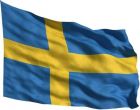 | Grants of SEK 704/week for 40 weeks per year are universally available for full-time students for six years. The maximum amount per year is SEK 28 160. Part-time students, studying at least 50 %, are able to receive grants proportional to their pace of study. 71 % of the all students received grants in 2014. | State guaranteed loans of SEK 1 772/week for 40 weeks per year are universally available for full-time students
for six years. The annual maximum amount is SEK 70 880. Part-time students, studying at least 50 %, are able to
receive loans proportional to their pace of study. Repayment starts at the earliest six months after the student last
received the loan, and must be completed within 25 years or before the age of 60. The government decides upon
the interest rate level on a yearly basis. 52 % of students received loans in 2014.
Students with children can receive an extra grant. It is also possible for some students to receive further supplementary loans, and loans for additional costs connected to their studies. This concerns, for example, students with additional costs for double housing, travel, musical instruments, etc. |
Switzerland 2016/17 - grants and loans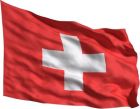 | Each canton has its own regulations for the provision of grants and loans to students resident in Switzerland
(decentralised system). In all cantons, the amount granted depends on the financial situation of the applicant and
his/her family.
Support in the form of grants or loans or a combination of both is provided. The majority of beneficiaries only receive grants (2014: about 95 % grants only, about 2 % loans only, about 3 % grants and loans). In 2014, the most common loan was CHF 6 200. Some higher education institutions have their own funds for supplementary support of students. Students can only apply if they already have applied for cantonal grants/loans. | Each canton has its own regulations for the provision of grants and loans to students resident in Switzerland
(decentralised system). In all cantons, the amount granted depends on the financial situation of the applicant and
his/her family.
Support in the form of grants or loans or a combination of both is provided. The majority of beneficiaries only receive grants (2014: about 95 % grants only, about 2 % loans only, about 3 % grants and loans). In 2014, the most common loan was CHF 6 200. Some higher education institutions have their own funds for supplementary support of students. Students can only apply if they already have applied for cantonal grants/loans. |
Turkey 2016/17 - grants and loans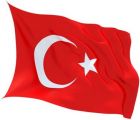 | Need-based grants are provided by the Higher Education Credits and Hostels Institution. Short-cycle, first and
second cycle students can receive need-based grants. No further information is available on the eligibility criteria.
In 2015, students in first cycle receive TL 330 per month (TL 3 960 a year), while students in second cycle are provided with monthly TL 660 (TL 7 920 per year). 10 % of students receive need-based grant. Merit-based grants are provided by the General Directorate of Higher Education Credit and Hostels Institution, universities, municipalities, and NGOs for good performing students. The state grant (via the General Directorate) is a standard monthly TL 990 to eligible students. The amount of other grants is different for every institution. Students who pass the university entrance exam with excellent results may be offered to pay only half or five eighths of the fee (this may vary from one university to another). | Loans: in 2015, students in the 1st cycle receive TL 330, while students in the 2nd cycle are provided with TL 660 per month. The repayment begins two years after graduation in monthly instalments. Repayment needs to be completed in as much time as the student benefited from the loan. The repayment amount is calculated according to domestic product price index. This is a state guaranteed loan, which 28 % of students receive. |
Wales 2016/17 - grants and loans | 1st cycle and short-cycle full-time: students can apply for a fee grant of up to GBP 5 100 and a fee loan of up to GBP 3 900 to cover the full tuition fee. Repayments are income-contingent and set at 9 % of earnings above the threshold of GBP 21 000; interest rates are Retail Price Index plus 3 %. | The support package also includes a need-based grant and a loan for living costs. The grant amount depends on
income, with a maximum of GBP 5 161 for students with a household income of GBP 18 370 or less. In 2014/15,
66.6 % of applicants eligible for support (grant and/or loan) received a grant (37.4 % of applicants received a full
grant and 29.2 % a partial grant). The maximum loan for students living in the family home is GBP 4 786. For
students living away from home, it is GBP 6 183 and less for students who receive a need-based grant. Repayments
are set at 9 % of earnings above the threshold of GBP 21 000; interest rates are Retail Price Index plus 3 %.
1st cycle part-time: students studying a course of at least 25 % intensity, or in short cycle programmes, can apply for a loan to cover the tuition fee. A need-based grant is available to students studying at an intensity of at least 50 %. 2nd cycle: there is no universal support package. 2nd cycle postgraduate non-taught – individual institutions can provide a merit-based grant, which tends to follow the minimum stipend recommended by Research Councils UK, GBP 14 296 for 2016/17. |